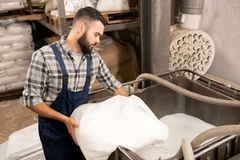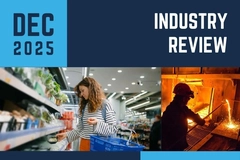European surveys reveal consumer confusion around recycling F&B packaging

20 Dec 2022 --- A collection of surveys of consumers in Poland and Spain reveals that a lack of knowledge about food packaging symbols hinders effective disposal practices.
The surveys were carried out in partnership with Aarhus University, Denmark and other European industry partners and research institutes. It is funded by the European Institute of Innovation and Technology under the EIT Food program and co-founded by the EU.
The survey findings reveal that respondents prefer short written communication, videos and infographics to learn new information. These are the types of communication that have a positive impact on consumer behavior.
Lead author of the study, Dr. Stella Lignou, associate professor at the University of Reading, England, says: “Consumers need really clear instructions to be able to recycle as much as possible.”
“Even when people know what materials the packaging includes, they still encounter difficulties, for example, whether they have to clean the packaging or not before disposing of it. In Poland, consumers had more disposal-related issues at home and out and about.”
.jpg) The citizens of Poland and Spain revealed their confusion about recycling symbols in a new survey. Mixed responses
The citizens of Poland and Spain revealed their confusion about recycling symbols in a new survey. Mixed responses
Consumers expressed confusion about recycling mixed material packaging, such as a yogurt pot with different materials for the pot and lid. The public also named having challenges associated with separating materials.
A key theme is consumers’ distaste for excessive packaging of fresh produce. The survey conductors believe this may influence consumer choice, and consumers may choose products with less or no packaging.
Consumers’ negative opinions surrounding excess packaging have been on the rise. However, such attitudes have mostly been observed in the e-commerce business sector. The new survey from Spain and Poland reveals that the over-packaging frustration extends across sectors and stands as a running theme.
“These results are fairly consistent with our early proof-of-concept surveys in Greece and the UK. Recycling is becoming increasingly important as we seek to protect natural resources and reduce environmental impact. This study gives us a good indication of the sorts of interventions that could work across Europe,” continues Lignou.
Global confusion
Similarly, a survey from Republic Services revealed that despite high confidence levels, most US consumers lack an understanding of proper recycling practices – particularly for plastics.
After surveying 2,000 US citizens, the solid waste collection company found that 64% did not know which types of plastics could be recycled.
The confusion surrounding recycling has been an ongoing issue within the industry.
UK resource management company Veolia has called for clearer recycling labels on the packaging after YouGov research found that only 8% of UK consumers strongly believe that they are clear. Over a third of respondents admitted that recycling confuses them, while only 12% felt they could trust recycling labels.  Global surveys have revealed cross-country confusion about how to recycle F&B packaging.
Global surveys have revealed cross-country confusion about how to recycle F&B packaging.
Other countries have been focused on mending the recycling confusion and generating clearer rules for consumers.
For example, In 2019, UK WRAP and The On-Pack Recycling Label organization formed a partnership to provide consistent messaging on packaging labels and improve household and on-the-go recycling levels. Tactics such as these can be implemented into other countries such as Poland and Spain.
A reusable shift?
The food packaging industry is heading toward a reusable economy, and therefore the confusion surrounding recyclable materials may become less important.
If more and more food packagers and supermarkets shift to using reusable packaging, the confusion about recyclable materials could no longer be a pressing issue.
However, currently the packaging industry is far from this ideal.
Yesterday, German scale-up Vytal leveraged digital technology and AI to overcome difficulties in the reusable packaging sector. The group, which rents out containers to F&B suppliers on a pay-per-use basis, raised over €2 million (US$2.13 million) in a crowd-investing campaign after landing US$10 million in a series A financing round earlier this year.
Last week, Sainsbury’s announced it will remove single-use plastic lids across its own-brand dip pot ranges in 2023. For covers, it will now offer reusable options to buy in-store or online.
Most notably, Aldi opened a “green” supermarket in Royal Leamington Spa, UK, offering zero-waste and reusable food packaging options to reduce the average CO2 emissions that conventional supermarkets produce by two-thirds.
Edited by Sabine Waldeck










